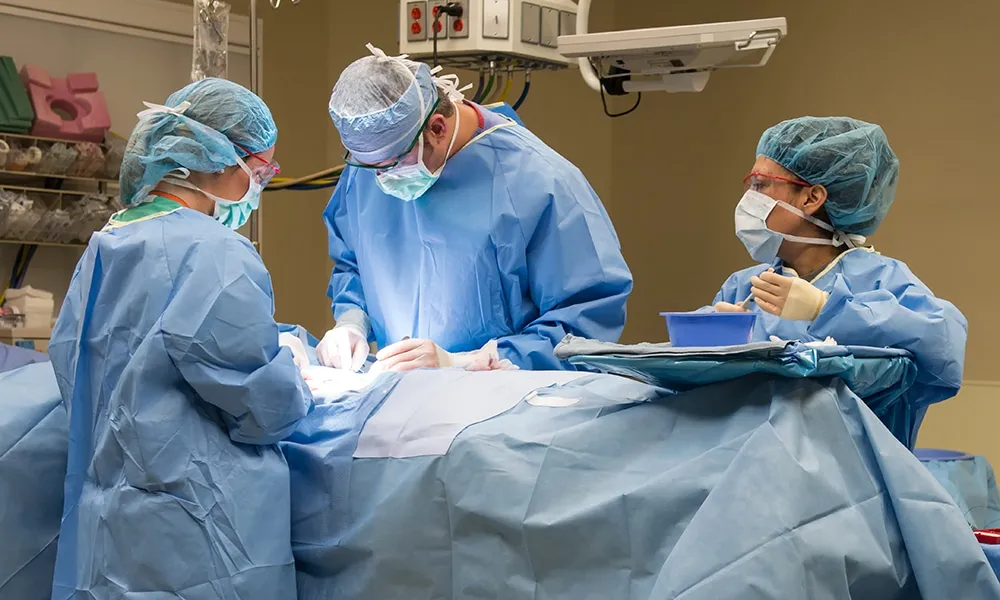Varicocele surgery, also known as Varicocelectomy, is a medical procedure aimed at correcting varicoceles - enlarged veins within the scrotum, akin to varicose veins that occur in the legs. This condition is prevalent among 15% of adult males and can lead to pain, testicular atrophy, and infertility issues. Delhi, being a hub for advanced medical care, offers some of the best options for varicocelectomy surgery, providing relief and improved quality of life for patients.
Preparation for Varicocele Surgery
Preparation is a crucial step toward ensuring the success of varicocelectomy surgery. The process begins with a thorough evaluation by your healthcare provider, including a physical examination and possibly an ultrasound to assess the severity of the varicocele. Discuss your medical history, any medications you're taking, and whether you've had reactions to anesthesia in the past.
In the days leading up to the surgery, you may be advised to:
Stop taking certain medications or supplements that can increase bleeding risk, such as aspirin, ibuprofen, and certain vitamins.
Arrange for transportation home post-surgery, as you'll be under the influence of anesthesia.
Follow specific eating and drinking restrictions, typically fasting from midnight before your surgery day.
The Surgery Process
Varicocelectomy can be performed through different techniques, with the most common being the open surgery method, laparoscopic surgery, or microsurgical techniques. The choice of procedure depends on individual cases, and your surgeon in Delhi will recommend the best approach for you.
Open Surgery: This traditional method involves making an incision in the lower abdomen to access and tie off the affected veins, preventing blood flow to the varicocele.
Laparoscopic Surgery: A minimally invasive procedure where small incisions are made in the abdomen, and a tiny camera (laparoscope) guides the surgeon in tying off the veins.
Microsurgical Varicocelectomy: This approach involves the use of a surgical microscope, allowing the surgeon to operate with a high level of precision, minimizing the risk of damaging surrounding structures and reducing the chances of recurrence.
The surgery generally lasts 1 to 2 hours and is performed under general anesthesia, ensuring you're asleep and pain-free throughout the procedure.
Recovery After Varicocele Surgery
Post-surgery, you'll spend a few hours in a recovery room as the anesthesia wears off. Most patients can go home the same day, although some may require a brief hospital stay. Recovery experiences can vary, but many patients report:
Mild to moderate pain or discomfort in the surgical area, manageable with prescribed pain medications.
Swelling and bruising, which typically subside within a few weeks.
Instructions to avoid strenuous activities, heavy lifting, and sexual activity for a certain period, usually around 2 to 4 weeks, to facilitate healing.
It's essential to follow your surgeon's specific post-operative instructions closely, including attending follow-up appointments to monitor your recovery and the effectiveness of the surgery.
Long-Term Care
The long-term outlook after varicocele surgery is generally positive, with many patients experiencing significant relief from symptoms and an improvement in fertility parameters if infertility was an issue. To maintain optimal health and prevent complications:
Conduct regular self-examinations to monitor for any changes or recurrence, particularly in the first year post-surgery.
Maintain a healthy lifestyle, including a balanced diet and regular exercise, to support overall vascular health.
Be vigilant about any new or worsening symptoms and consult your healthcare provider promptly if concerns arise.
Conclusion
Varicocelectomy Surgery in Delhi offers a promising solution for individuals suffering from this uncomfortable and potentially fertility-impairing condition. With advancements in medical technology and skilled surgeons, varicocelectomy can significantly improve patients' quality of life. Preparation, understanding the recovery process, and adhering to long-term care guidelines are key to achieving the best possible outcomes from your varicocele surgery.

